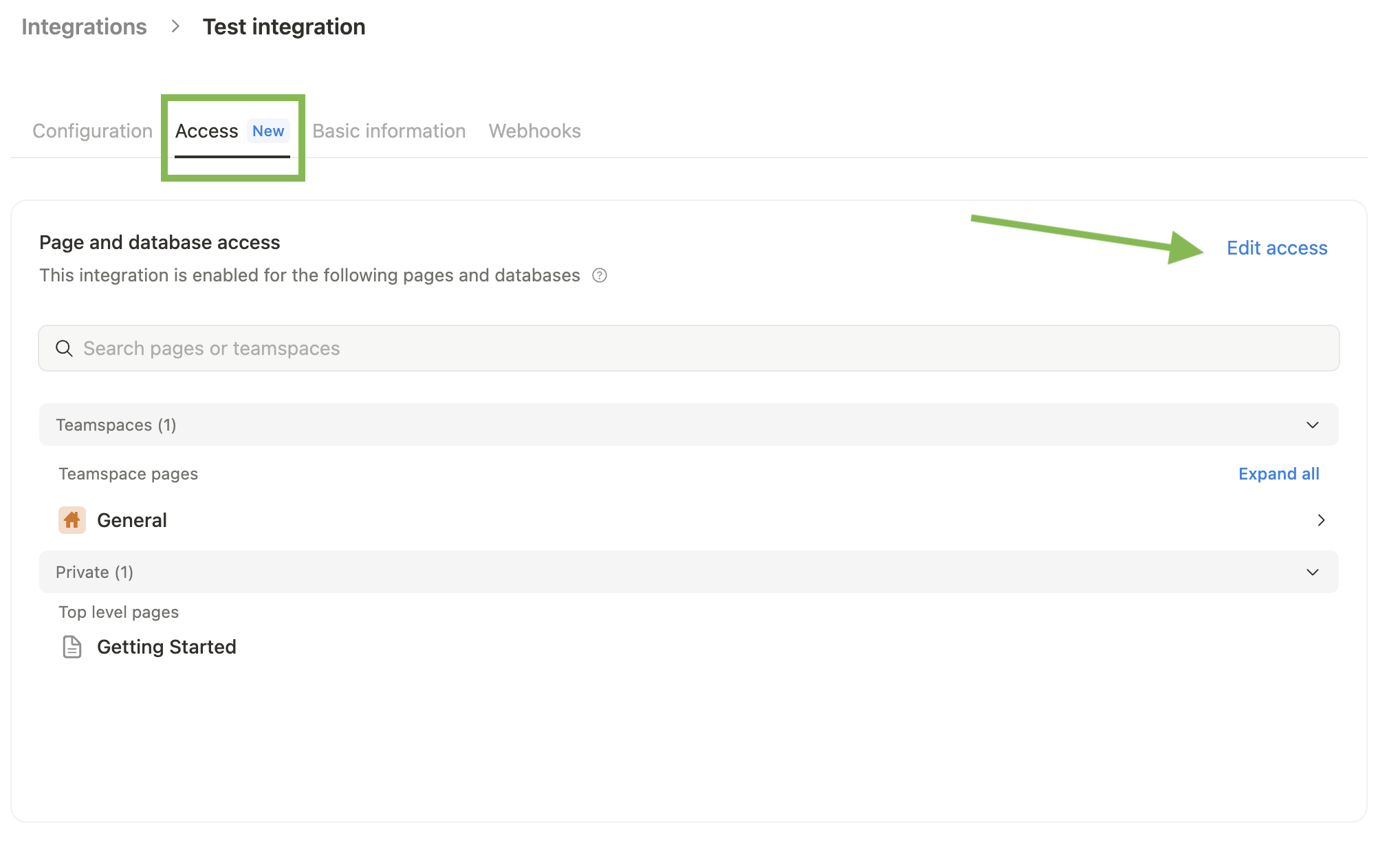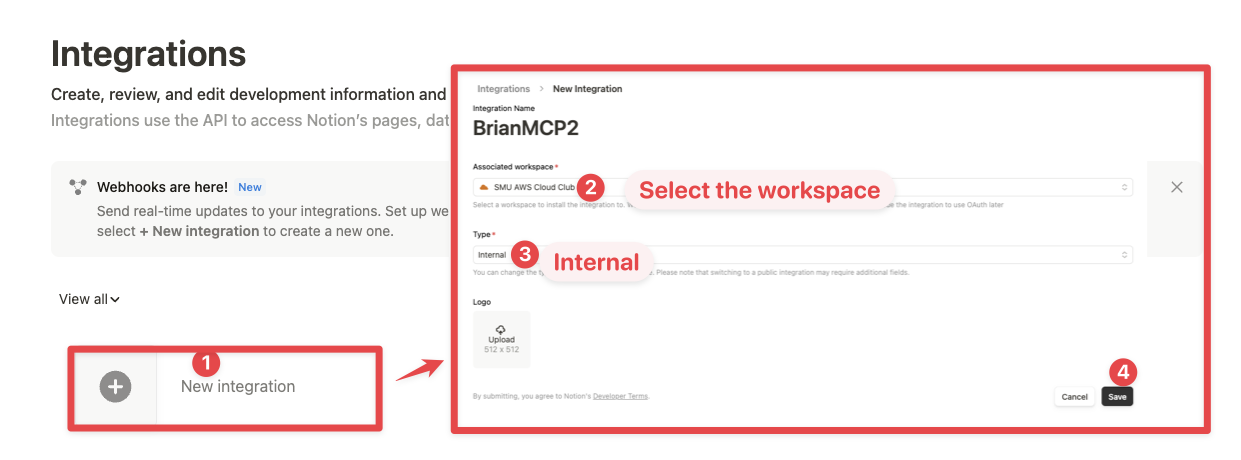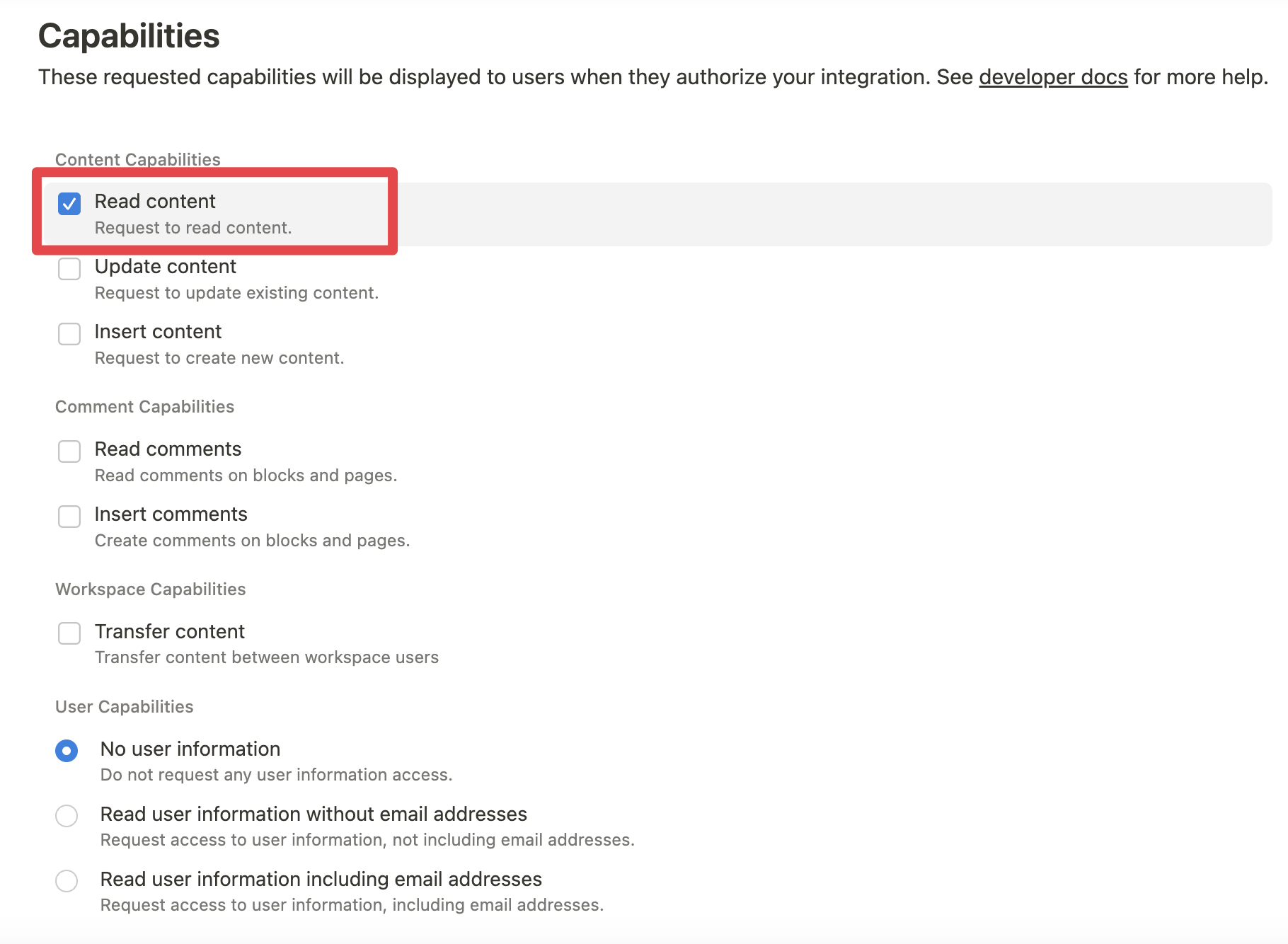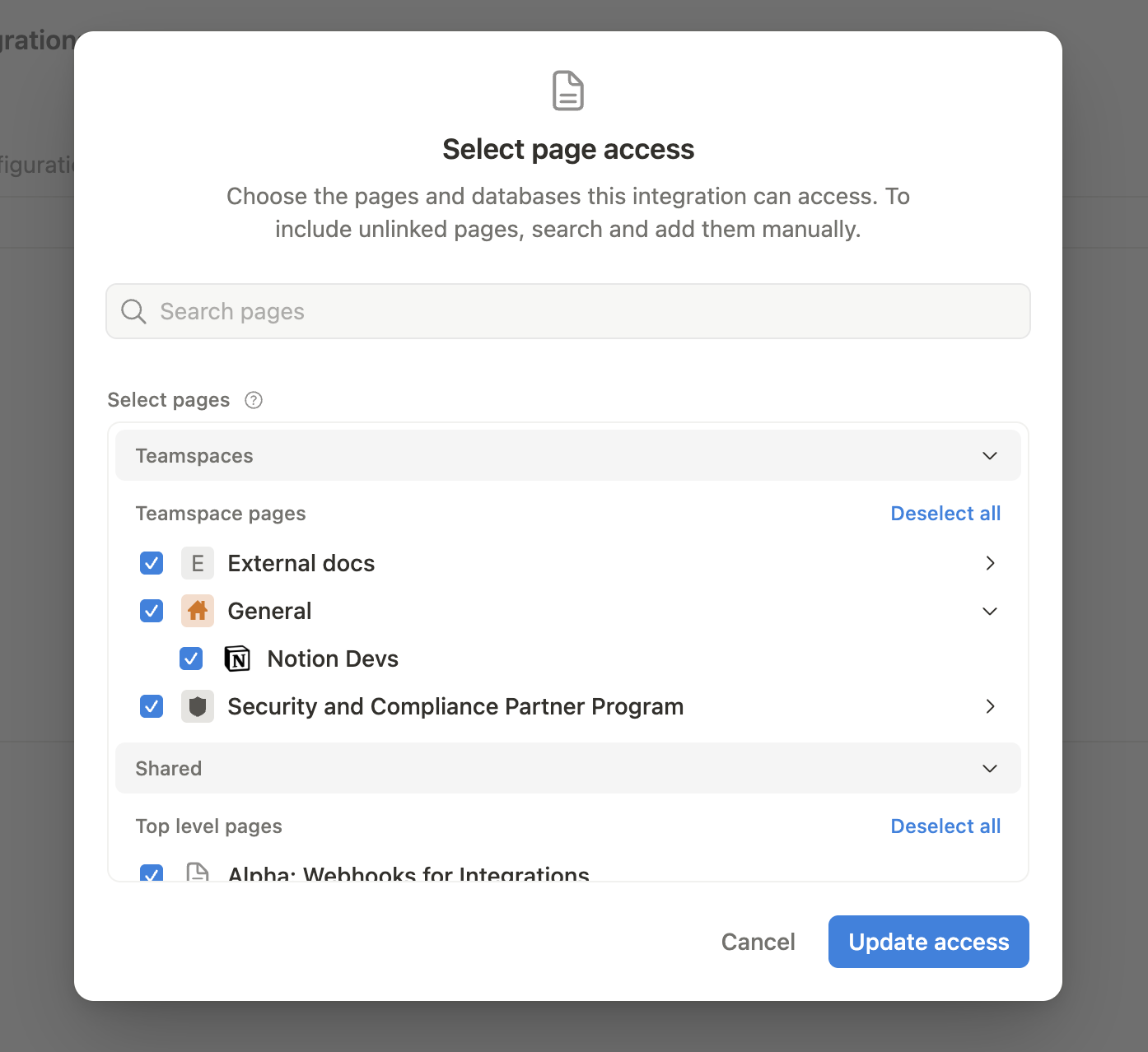Note
We’ve introduced Notion MCP (Beta), a remote MCP server with the following improvements:
- Easy installation via standard OAuth. No need to fiddle with JSON or API token anymore.
- Powerful tools tailored to AI agents. These tools are designed with optimized token consumption in mind.
Learn more and try it out
This project implements an
Go to
While we limit the scope of Notion API's exposed (for example, you will not be able to delete databases via MCP), there is a non-zero risk to workspace data by exposing it to LLMs. Security-conscious users may want to further configure the Integration's Capabilities.
For example, you can create a read-only integration token by giving only "Read content" access from the "Configuration" tab:
Ensure relevant pages and databases are connected to your integration.
To do this, visit the Access tab in your internal integration settings. Edit access and select the pages you'd like to use.

Alternatively, you can grant page access individually. You'll need to visit the target page, and click on the 3 dots, and select "Connect to integration".
Add the following to your .cursor/mcp.json or claude_desktop_config.json (MacOS: ~/Library/Application\ Support/Claude/claude_desktop_config.json)
{
"mcpServers": {
"notionApi": {
"command": "npx",
"args": ["-y", "@notionhq/notion-mcp-server"],
"env": {
"OPENAPI_MCP_HEADERS": "{\"Authorization\": \"Bearer ntn_****\", \"Notion-Version\": \"2022-06-28\" }"
}
}
}
}There are two options for running the MCP server with Docker:
Add the following to your .cursor/mcp.json or claude_desktop_config.json:
{
"mcpServers": {
"notionApi": {
"command": "docker",
"args": [
"run",
"--rm",
"-i",
"-e", "OPENAPI_MCP_HEADERS",
"mcp/notion"
],
"env": {
"OPENAPI_MCP_HEADERS": "{\"Authorization\":\"Bearer ntn_****\",\"Notion-Version\":\"2022-06-28\"}"
}
}
}
}This approach:
- Uses the official Docker Hub image
- Properly handles JSON escaping via environment variables
- Provides a more reliable configuration method
You can also build and run the Docker image locally. First, build the Docker image:
docker-compose buildThen, add the following to your .cursor/mcp.json or claude_desktop_config.json:
{
"mcpServers": {
"notionApi": {
"command": "docker",
"args": [
"run",
"--rm",
"-i",
"-e",
"OPENAPI_MCP_HEADERS={\"Authorization\": \"Bearer ntn_****\", \"Notion-Version\": \"2022-06-28\"}",
"notion-mcp-server"
]
}
}
}Don't forget to replace ntn_**** with your integration secret. Find it from your integration configuration tab:
To install Notion API Server for Claude Desktop automatically via
npx -y @smithery/cli install @makenotion/notion-mcp-server --client claude- Using the following instruction
Comment "Hello MCP" on page "Getting started"
AI will correctly plan two API calls, v1/search and v1/comments, to achieve the task
- Similarly, the following instruction will result in a new page named "Notion MCP" added to parent page "Development"
Add a page titled "Notion MCP" to page "Development"
- You may also reference content ID directly
Get the content of page 1a6b35e6e67f802fa7e1d27686f017f2
Build
npm run build
Execute
npx -y --prefix /path/to/local/notion-mcp-server @notionhq/notion-mcp-server
Publish
npm publish --access public






